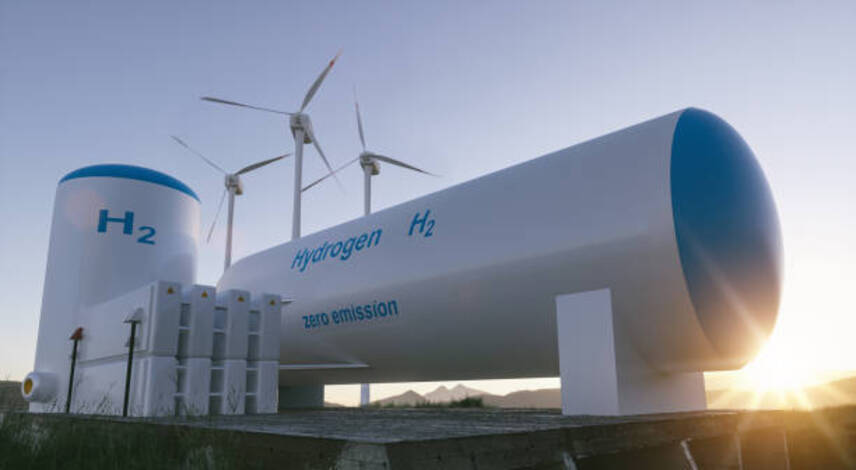France is leading a push for the European Union to include nuclear power’s low-carbon hydrogen in its renewable energy regulations. But some other EU members are against it. They are concerned that it will jeopardize efforts to fast build up wind and solar.
In a letter to the European Commission this week, ministers from France, Poland, the Czech Republic, and six other EU nations pleaded with the body to expand the EU’s renewable energy targets to include hydrogen derived from nuclear energy.
EU wants emissions-free hydrogen
The key to the EU’s goals to reduce CO2 in sectors like fertilizer production and steel production is scaling up emissions-free hydrogen.
Nowadays, most of the hydrogen used by European industry comes from coal and gas, both of which emit CO2. The EU intends to set sectoral targets for hydrogen made from renewable electricity. Electricity is one of the sources of hydrogen production.
The letter from the nine nations urged the EU to use nuclear energy, which is low-carbon but not renewable.
In general, H2 production is possible by using a variety of methods. One of them is nuclear power plants. However, the production of hydrogen using nuclear power does not make the hydrogen “green.” While nuclear power itself is a low-carbon energy source, it still generates radioactive waste and poses safety and security risks.
Green hydrogen production, also known as renewable hydrogen, is by using renewable energy sources such as wind and solar power. This type of H2 is more environmentally friendly because it does not produce greenhouse gas emissions or other pollutants during production.
Equal incentives for both renewable and low-carbon hydrogen
There will be equal incentives for both renewable and low-carbon hydrogen. According to the letter, which was also signed by Romania, Bulgaria, Slovenia, Croatia, Slovakia, and Hungary, limiting EU goals to renewable energy sources will slow down the growth of the EU’s hydrogen economy.
Historically, France has generated roughly 70% of its electricity from nuclear sources. However, maintenance issues made last year’s share lower than usual. The other signatory nations either already rely on nuclear energy or intend to construct their own reactors.
New conflict in the dawn of the new renewables law
According to officials, at least nine EU nations, including Germany, Denmark, Austria, and Luxembourg, are against this proposal.
They contend that in order to encourage the vast expansion of renewables required to reduce Europe’s dependency on fossil fuels, the EU targets should only concentrate on renewable energy sources like wind and solar.
According to an EU official who cautioned against “diluting” the renewables targets, nuclear power is not a renewable source of energy.
The late conflict comes as EU nations and legislators get ready for talks on the law that would set the pace for Europe’s deployment of renewable energy this decade next week.
Although they are working to pass the bill in the coming months, negotiators cannot agree on whether the EU should pledge to obtain 40% or 45% of all of its energy from renewable sources by 2030.

